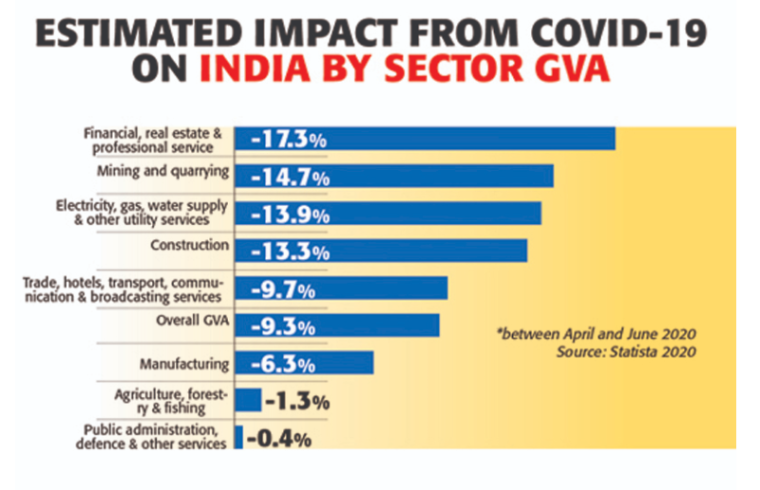Shaken by the impact of Covid-19, organisations are devising various strategies to keep their business afloat
The world is battling this century’s worst pandemic. Period. The novel coronavirus is destroying everything that’s coming its way — people, economies and industries. India, too, is feeling the jitters. In fact, as per the World Bank’s South Asia Economic Focus report, India is likely to grow at 1.55-2.8 per cent in 2020-21.
As we come to terms with this pandemic that’s forcing us to change the way we live, the way we work and the way we learn, it’s important to strategise and plan our transition to the future. With uncertainty looming large, business heads are forced to remain positive and plan for business continuity. In a bid to understand the survival and sustenance plans of the industry, The Economic Times in association with LogMeIn, hosted a webinar on ‘Business Continuity in times of Covid-19’, with some of the prominent leaders from across sectors. The session was moderated by Alokesh Bhattacharyya, Senior Editor, ET.
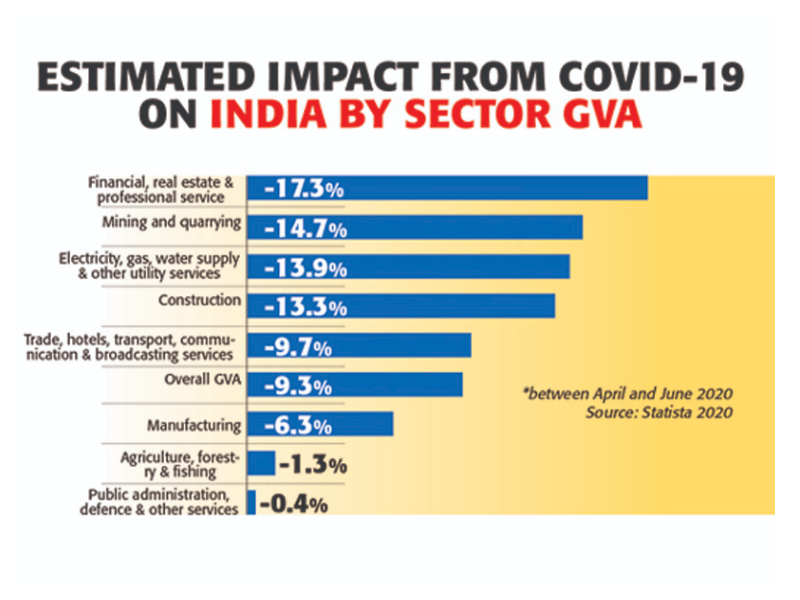
One of the first sectors to feel the impact of Covid-19 was hospitality. It may also be the one to feel the longest lull in business. According to J.B. Singh, President and CEO, InterGlobe Hotels the business is a complete washout for the sector. “The industry occupancy in the current state must be around 5-8 per cent and that is mostly by people who are stuck because of the lockdown. So, the first quarter scenario — which we started mid-March – stands at zero.â€
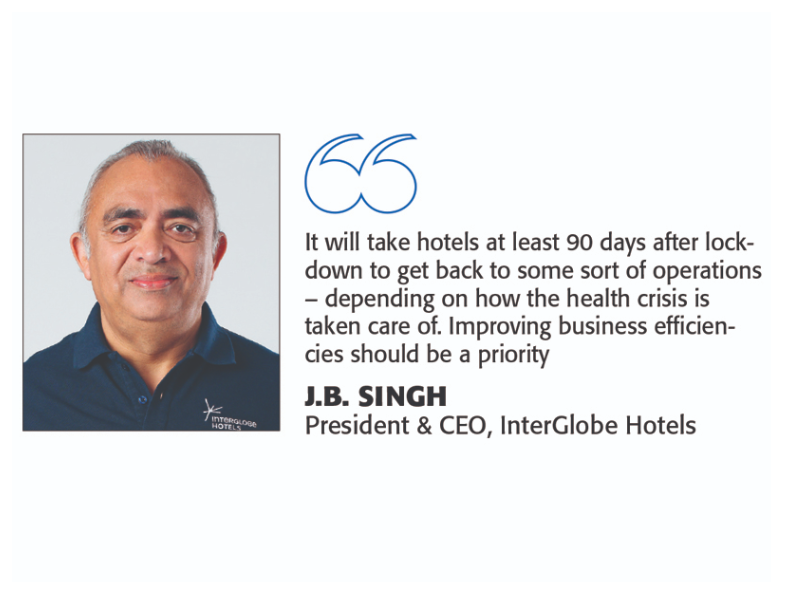
For technology and insurance companies such as LogMeIn and Sun Life Financial, it’s about adapting to the new normal and keeping their workforce tuned in. Rahul Sharma, Director, Managing Director-India & SAARC, LogMeIn said, “Some of us in the technology sector who have an understanding of work from home (WFH) are taking to it naturally. Of course, the lockdown is making it difficult but from a business continuity standpoint, we have it in our DNA to cope with this.†For Sun Life, it’s their millennial-heavy staff that’s making the run smooth. “Our employees are working to see where and how the impact on clients can be minimum and how best they can contribute,†said Chandan Barve, Chief Administrative Officer, ES Asia and Site Head, Asia Service Centre India, Sun Life Financial.
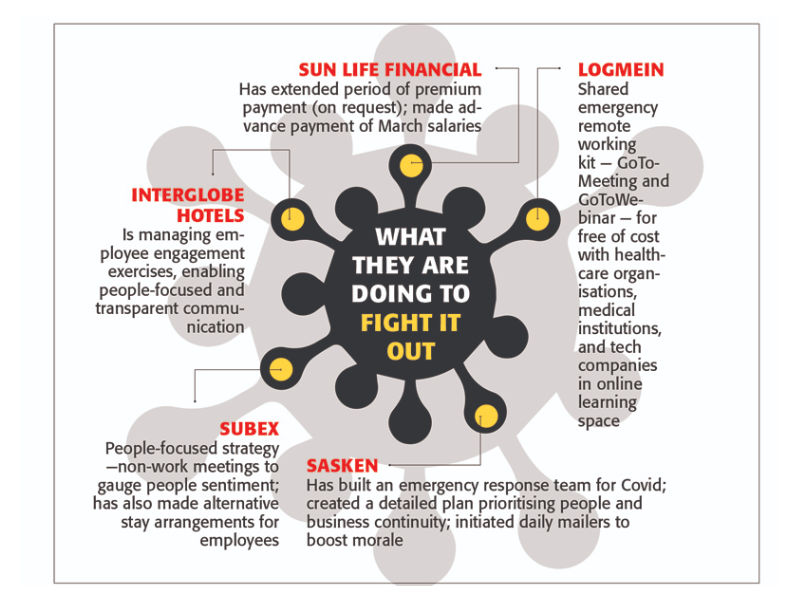
With WFH becoming the new normal, companies are also looking beyond their bottom lines and worrying about their employees’ wellbeing. From Sasken doing virtual team building activities to keep employees’ spirits high to Sun Life Financial providing employee engagements/assistance programmes to focus on their mental and physical wellbeing, the pandemic is bringing out the softer and more indulgent side of organisations. “Empathy has become a key attribute for an organisation now,†said Rahul Sitharam, Chief Human Resources Officer, Subex. He also echoed the positive impact of WFH on the environment. “Imagine the environment impact that 40 lakh people can create if they WFH once a week,†said Krishna Kumar, Global Head-Delivery and VP, Sasken. He urged Nasscom and the IT sector to come together and vouch for annual week-long work from home for the IT sector. “WFH will become a norm and work force uberisation – hiring experts who work on hourly basis in multiple organisations — will witness a surge,†he added further.
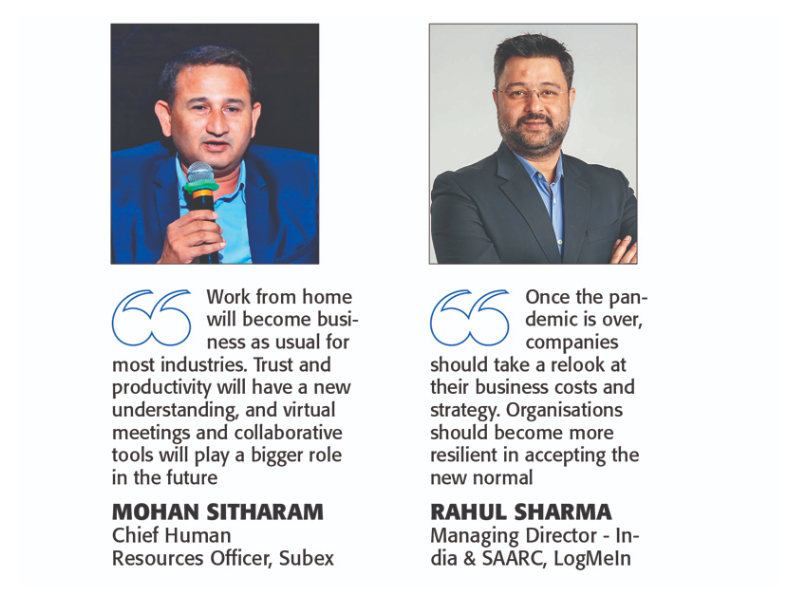
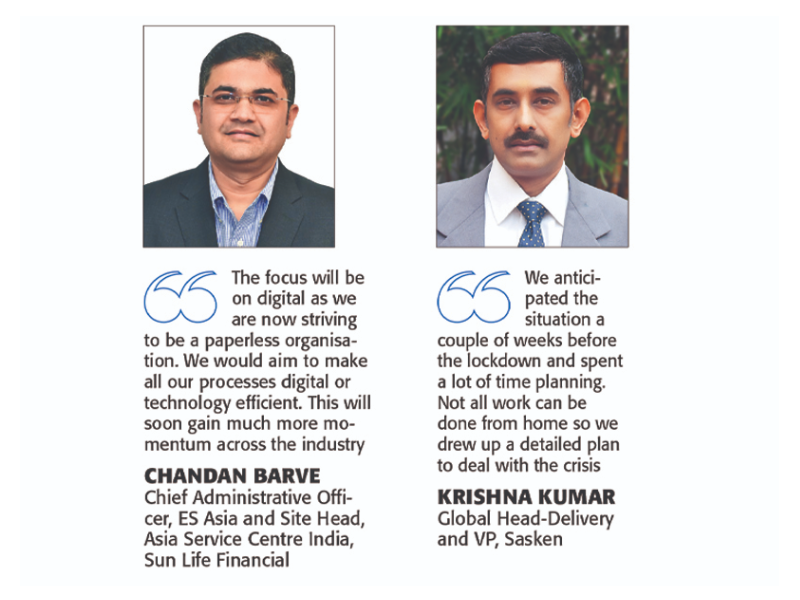
Some like Barve believe that India may gain from the current scenario as several countries are looking for viable alternatives to China. “If we ensure that the bureaucracy and regulatory hurdles are streamlined and take the first mover’s advantage, we can benefit a lot,†he said.
But amidst the positivity and the survival plans, the question remains: when will we bounce back? “Even if things get better by June, the industry will hit losses close to $ 1.5 billion. But everything will depend on how the health crisis is taken care of,†said Singh. Krishna agreed that it was too early to predict when industry will pick up but indicated that while some strategies and programs may get paused, others may get restarted. “Once things start getting back, it will be quite a rapid rise back up,†he said.
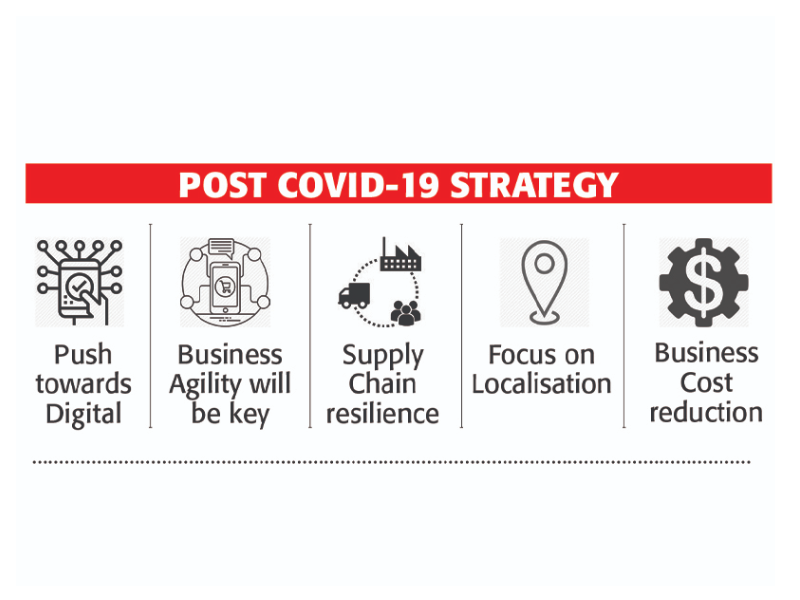
The panelists also mooted the government’s important role in getting the country back on track. “It will have to play an active role — build confidence, boost sentiment, and take a relook at the monetary policy in conjunction with RBI or relax norms from a regulatory stand point,†said Barve. Singh agreed and suggested India should learn from developed countries and fix the inefficiencies in regulatory norms, licensing issues, and building and parking issues. The need to focus on policy making and bringing in efficiencies was echoed by Sharma.
The current situation is an unforeseen one. And, it will take a lot to truly bounce back. But, if the industry and the government come together to build sustainable business models, strong compliances, governance and reserves, the end should be better than anticipated. It’s time to accept the new normal.
The article has been written by Nishita Chandak from Times Group
Disclaimer: This article has been produced on behalf of LogMeIn by Mediawire team.
